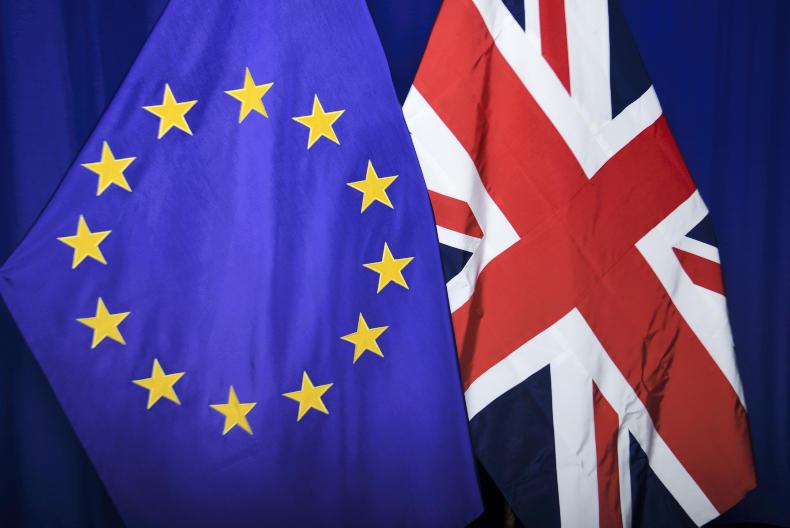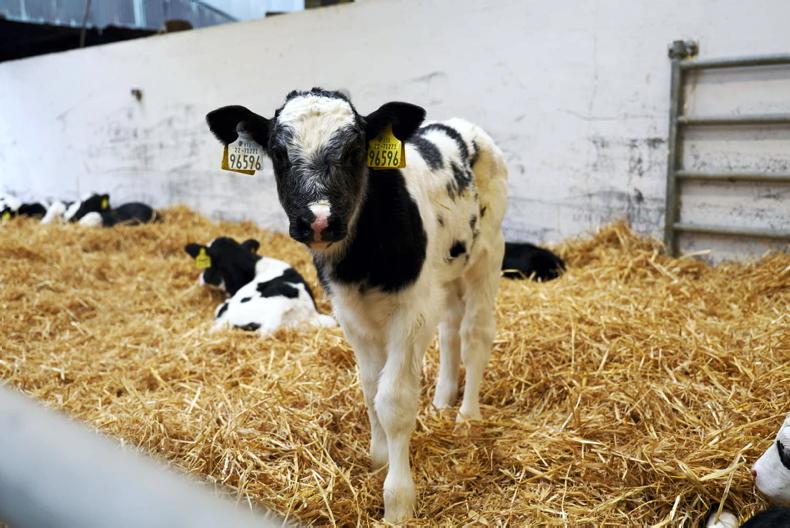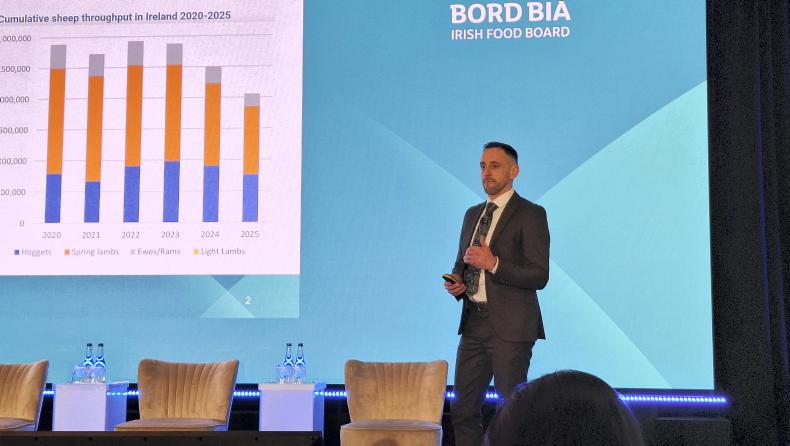There may be widespread relief in political circles that a Brexit deal is about to be concluded in Brussels, with VAT apparently the last issue to be resolved. However, for farmers it will mean confirmation of the UK leaving the EU - and any deal associated with this is simply a less bad option than a no-deal Brexit.
There is still the added issue of getting approval for this deal in the UK parliament. The previous prime minister Theresa May failed on three occasions to do so.
Irish and UK farmers are likely to be going head to head with Brazilian beef in UK supermarkets
Farmers across the island of Ireland were best served by the UK remaining in the EU. Huge effort has been spent in creating a bureaucratic structure that is intended to replicate some of the parts of EU membership that were taken for granted.
All of this is before we contemplate what Britain might do in relation to negotiation of its future trade deals. Access for agricultural produce to the UK market will be attractive to countries such as the US, Brazil, Canada and Australia - all of which have been identified by the UK as targets for a speedy free-trade agreement (FTA) after Brexit.
Better than no deal … just
A no-deal Brexit would have been a nightmare for farmers from 1 November and there is now certainty of no change before the end of 2020 - perhaps longer if this is extended to facilitate an FTA negotiation between the EU and UK.
However, when we move into the FTA, Irish and indeed UK farmers are likely to be going head to head with Brazilian beef in UK supermarkets from cattle that are currently worth €2.16/kg at the farm gate.
UK and Irish beef will of course command a premium but this premium will be calculated on this base, not the Irish price as it is at present. The proposed Brexit means a hard Brexit in the UK apart from Northern Ireland.
Logistics
There is also the question of logistics on the Irish sea routes with a hard border in Holyhead and Fishguard - as is inevitable in an FTA. Previous Irish Farmers Journal studies on the Swiss-German and Norway-Sweden borders have revealed at least a 15-minute average delay for commercial vehicles, and this will create problems for Irish deliveries of fresh produce.
This deal is better than a no-deal Brexit but there is nothing for farmers to celebrate as it is vastly inferior to the basis for trade in what was a customs union and single market with the UK for the past 25 years. The British market will be devalued and the support measures promised in the event of a no-deal Brexit from the EU and Irish Government will still be required.
Read more
Creed urges caution on Brexit deal
There may be widespread relief in political circles that a Brexit deal is about to be concluded in Brussels, with VAT apparently the last issue to be resolved. However, for farmers it will mean confirmation of the UK leaving the EU - and any deal associated with this is simply a less bad option than a no-deal Brexit.
There is still the added issue of getting approval for this deal in the UK parliament. The previous prime minister Theresa May failed on three occasions to do so.
Irish and UK farmers are likely to be going head to head with Brazilian beef in UK supermarkets
Farmers across the island of Ireland were best served by the UK remaining in the EU. Huge effort has been spent in creating a bureaucratic structure that is intended to replicate some of the parts of EU membership that were taken for granted.
All of this is before we contemplate what Britain might do in relation to negotiation of its future trade deals. Access for agricultural produce to the UK market will be attractive to countries such as the US, Brazil, Canada and Australia - all of which have been identified by the UK as targets for a speedy free-trade agreement (FTA) after Brexit.
Better than no deal … just
A no-deal Brexit would have been a nightmare for farmers from 1 November and there is now certainty of no change before the end of 2020 - perhaps longer if this is extended to facilitate an FTA negotiation between the EU and UK.
However, when we move into the FTA, Irish and indeed UK farmers are likely to be going head to head with Brazilian beef in UK supermarkets from cattle that are currently worth €2.16/kg at the farm gate.
UK and Irish beef will of course command a premium but this premium will be calculated on this base, not the Irish price as it is at present. The proposed Brexit means a hard Brexit in the UK apart from Northern Ireland.
Logistics
There is also the question of logistics on the Irish sea routes with a hard border in Holyhead and Fishguard - as is inevitable in an FTA. Previous Irish Farmers Journal studies on the Swiss-German and Norway-Sweden borders have revealed at least a 15-minute average delay for commercial vehicles, and this will create problems for Irish deliveries of fresh produce.
This deal is better than a no-deal Brexit but there is nothing for farmers to celebrate as it is vastly inferior to the basis for trade in what was a customs union and single market with the UK for the past 25 years. The British market will be devalued and the support measures promised in the event of a no-deal Brexit from the EU and Irish Government will still be required.
Read more
Creed urges caution on Brexit deal









SHARING OPTIONS